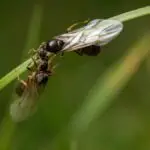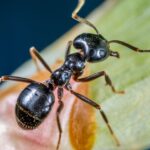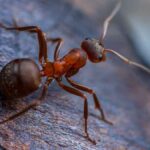Ants are one of the most frustrating yet harmless pests you can get in your home, and unfortunately, getting them in your home is a regular occurrence.
Especially when the weather starts to get warm! I used to get a long line of ants through my front door and into my cat’s food bowl. That was until I replaced the front door!
Now they cannot get in at all. Once they get into your kitchen, ants can get anywhere, including your dishwasher, which brings me to this post: How to get rid of ants in your dishwasher; let’s take a look!
What you will learn in this post:
- How to get rid of ants in your dishwasher
- Why ants get in your dishwasher
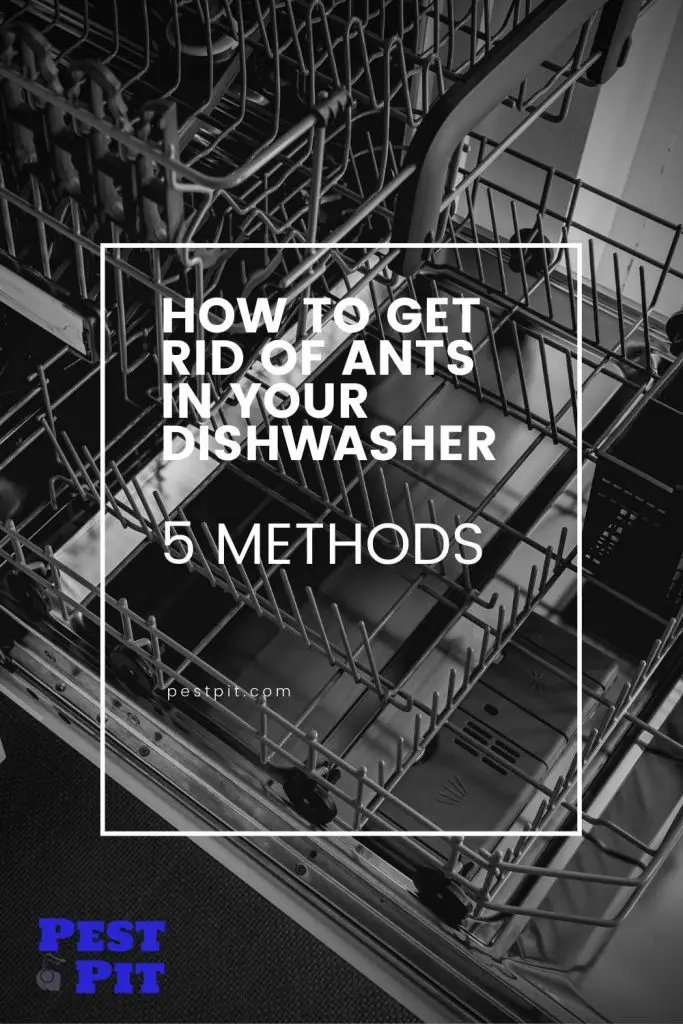
Where Are Ants In My Dishwasher?
Before we can look at how to get rid of ants in your dishwasher, we need to look at why they are getting there. So what is driving them to get into your dishwasher?
While getting ants in your dishwasher is not very common, it doesn’t mean that it cannot happen. Ants are pretty easy insects to understand, and once you know their primary objectives, you can understand why they get pretty much anywhere!
Here are the 5 most common reasons they get into your dishwasher.
Access to Water
Ants need water, and your dishwasher will offer them exactly what they are looking for. In addition, there will be collections of water in the dishwasher and potential leaks in the pipework of the dishwasher.
This is also a common reason you might see ants in your bathroom!
These collections of water will attract ants to it.
Access to Food
It is not just collections of water that will sit inside your dishwasher. As you put your plates and cutlery inside the dishwasher, you also add small pieces of food.
Also, your dishwasher will likely have a mesh protecting your drain from food that you may have left on the items you have added to the dishwasher. This mesh will collect remnants of food until you clear it out. This is a massive attraction to ants!
Route to Food
If you notice ants coming in through your dishwasher, it could be because your dishwasher is in the way of the food supply. Luckily (for the ants), your dishwasher is relatively easy to traverse.
If this is what is driving ants to your dishwasher it should be fairly obvious because they will simply be marching in a line through your dishwasher.
Ants lay down a chemical trail to let other ants know they have found some food. This is why you will notice a line of them.
Nearby Nest
I got ants in my dishwasher once, and it was because there was an ants nest under the kitchen window! Some patio slabs hid the nest, so I didn’t see it until I had an infestation.
The nest was directly on the other side of the dishwasher (there were bricks in the way); however, there were entry points in the brickwork (my bad). This brings me to the final reason:
Entry Points
The only reason you have got ants in your house (and therefore your dishwasher) is that you have at least one entry point.
Ants only need a very, very small gap to enter your home. They will also only need a small hole to get into your dishwasher. If you look behind the dishwasher, you will find many entry points, especially around the water inlet and outlet.
How To Get Rid Of Ants In Your Dishwasher – 5 Methods
OK, so now you know why there are there, let’s take a look at how to get rid of ants in your dishwasher! Here are 5 things that you can do, and you can start it now!
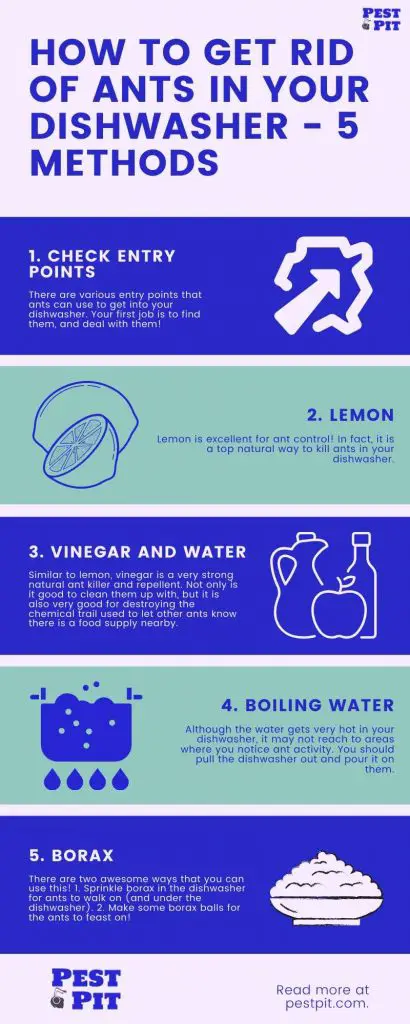
1. Check Entry Points
There are various entry points that ants can use to get into your dishwasher, and your first job is to find them and deal with them!
It is a challenge to cover up many of the entry points, especially around the back of the unit, where the cover is not great. However, you should check around the unit for entry points that are easy to cover up.
2. Lemon
Lemon is excellent for ant control! It is a top natural way to kill ants in your dishwasher.
Load up a water spray bottle with lemon juice and water and spray onto the ants and over any areas where you have noticed ant activity.
I’ve not tested it, but it might also be worth using lemon-scented dishwasher tablets. Even if they do not work to get rid of ants, at least your dishes will smell good.
3. Vinegar and Water
Similar to lemon, vinegar is a powerful natural ant killer and repellent. It is good to clean them up with, but it is also perfect for destroying the chemical trail used to let other ants know there is a food supply nearby.
Mix up 5/50 water and white vinegar into a spray bottle, and spray anywhere you have seen ants. Be sure to unplug the dishwasher first.
4. Boiling Water
Although the water gets boiling in your dishwasher, it may not reach areas where you notice ant activity. Instead, you should pull the dishwasher out and pour it on them.
Be careful not to pour water onto the electrical parts of the dishwasher, and always unplug it when dealing with the ant problem by using any liquid.
5. Borax
There are two excellent ways that you can use this! 1. Sprinkle borax in the dishwasher for ants to walk on (and under the dishwasher). 2. Make some borax balls for the ants to feast on!
Always store borax away from children and pets. Once you have scattered the powder or applied the borax balls in the area infested by ants, keep kids and pets away from those too!
Conclusion
If you want to know how to get rid of ants in your dishwasher, then the 5 tips on this page will get you the results you want now!
You can try one of the tips or go for all five! Either way, they work.
Ants do not carry any diseases; they can tread bacteria around your countertops and in your dishwasher.
The best option is to get rid of them with that in mind.
Good luck!

